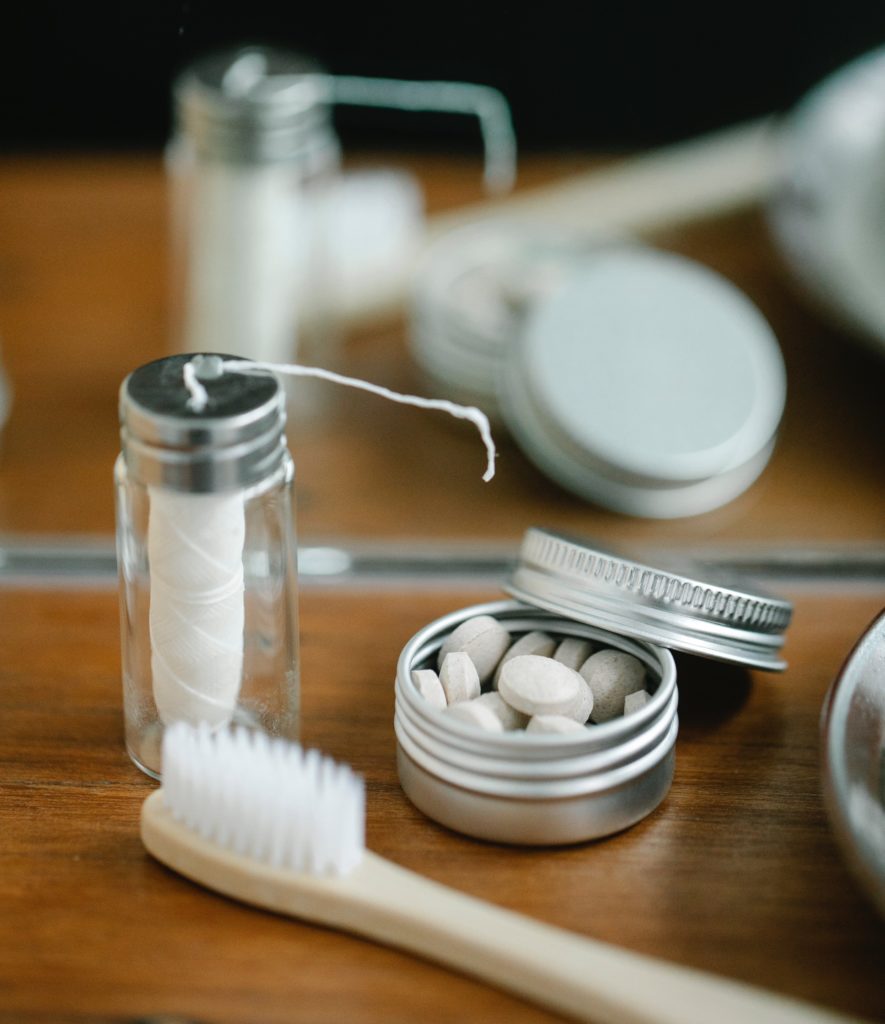Flossing. The dreaded word for nearly every patient. When I ask my patients if they have been flossing, 90% of the time the response is as follows: “not as often as I should be.” This usually translates to: whenever I have food stuck in my teeth.
As your dental hygienist, I do not ask you to floss because I’m afraid of a little elbow grease. I ask you to floss because I truly care about your health and well-being. Most hygienists get into the field because they want to help and see their patients get better. There is nothing more rewarding than a compliant patient who is on the right path to health.
I get genuinely excited when I see improved tissue health during a routine cleaning. Bleeding gums are NOT normal. Would you be alarmed if you went to the sink to wash your hands and noticed that your hands were bleeding? This would alert you that something is wrong. Gums bleed when they are infected. That infection can spread to other areas of the body and this is why treating it is so important!
The question you might be thinking is, why should I floss when I brush my teeth routinely? Well, plaque is a sticky substance made up of bacteria. It can be removed with routine brushing and flossing habits at home. But, did you know that 30% of our tooth surfaces go untouched if we don’t floss? That’s a huge percentage!
I once heard an analogy from a dentist who told his patients that not flossing is like forgetting to wash your butt crack in the shower. Disgusting right?! As gross as this sounds, it is not far from the truth. Flossing clears bacteria away from the areas our toothbrush can’t reach. Yes, we hygienists can tell if you’re a flosser, we can also tell if you only flossed the night before your appointment.
I have been blessed to work with some very experienced hygienists over the years. I once heard an explanation on flossing that made it easy to understand. Plaque is like cement in a cement truck. As long as that cement truck keeps spinning its drum the cement will not harden. Plaque is sticky and can be removed at home. If we move that plaque around at least once every 24 hours it will not harden and form tartar. Tartar is hardened, mineralized plaque that has been left behind. Tartar is a porous home for bacteria and other pathogens that cause gum diseases such as gingivitis or periodontitis. Gingivitis is painful and is the earliest stage of gum disease. If not taken care of, gingivitis can progress into something more serious and irreversible called Periodontal disease which results in bone loss of the Jaw.
It’s as serious as periodontal disease.
Some people may think they have simple gum irritation and not realize it could actually be Periodontal disease. Periodontal disease is inflammation that spreads beyond the gums and into the jaw bone. Periodontal disease is complex and can have many multi-factorial causes, some of which extend deep into the immune function of the individual. There can also be nutritional deficiencies involved, which adds to the complexity. In these cases it takes more thought and action to get to the root of the problem.
MiBöca Dentistry looks at the whole body health to find the cause. The gums and jaw are the support for our teeth. Your gums and jaw are arguably one of the most important aspects of oral health because it is the foundation on which our teeth are sitting. What happens to a house with a weak foundation? The house will crumble. Our teeth need this same firm foundation. This particular type of inflammation has a strong correlation between heart disease, alzhiemers and dementia, diabetes, preterm delivery and low birthweight babies, arthritis and so much more. The health of your mouth affects the rest of your body and vice versa.

Is there a wrong way to floss?
Flossing is extremely important for gum health and can help prevent gum disease. Unfortunately, many patients do not know how to floss properly. Simply snapping the floss between each tooth gives us little benefit. To floss effectively we must hug each tooth with a ‘C’ shape reaching below the gumline. There are two teeth we must hug each time we fit the floss between our teeth. It is my opinion that you can hug teeth better with string floss, but floss picks can still give you a good result.
Are there alternatives to string floss?
As a hygienist who struggles to get her patients to floss, it is my opinion that floss picks are doing good for our patients. It does the patient no good if I recommend something they simply will not use. I think the invention of the floss pick has motivated many patients to start flossing. Many of my patients have said they will never floss with string because “flossing is hard”.
For those patients who I will never convince to jump aboard the flossing train I always recommend water flossers. Getting something between your teeth is better than nothing at all. Water flossers can also be a great adjunct in addition to flossing for those that are more prone to gingival inflammation and bleeding. They are also great at getting under bridges, implants and crowns. Although flossing is the gold standard in a healthy mouth, a water flosser may actually be more helpful for certain types of patients.
As always, we are here to meet you where you are at in your health journey. We do not believe in making you feel guilty, but rather we want to empower you to take better care of your oral health. I believe that prevention is key. I promise I will be here to help you floss when YOU are ready!

Tiffany Pickhinke-Ortega RDH Functional Hygienist
Looking for a career with MiBöca Dentistry? Click the link to learn more: MiBöca Careers
© I.P.A Lincoln 2025
5305 S. 96th Street
omaha, Nebraska
17925 Barker court
Suite 100
omaha, Nebraska
(402) 331-0701
(402) 657-5143
M: by appointment only
T: 8:00-5:00
w: 8:00-5:00
th: 8:00-5:00
f: 8:00-5:00
sa: by appointment only
M: 8:00-4:00
T: 8:00-4:00
w: 8:00-4:00
th: 8:00-4:00
f: 8:00-4:00